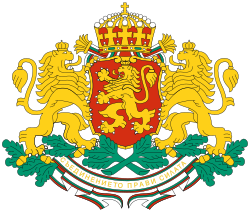 |
|---|
This article lists political parties in Bulgaria .
Bulgaria has a multi-party system, with numerous parties in which no single party usually manages to gain power alone, and parties must work with each other to form coalition governments.
 |
|---|
This article lists political parties in Bulgaria .
Bulgaria has a multi-party system, with numerous parties in which no single party usually manages to gain power alone, and parties must work with each other to form coalition governments.